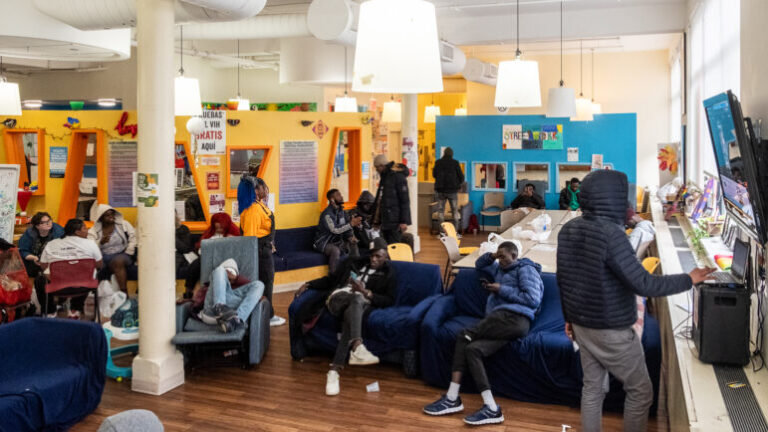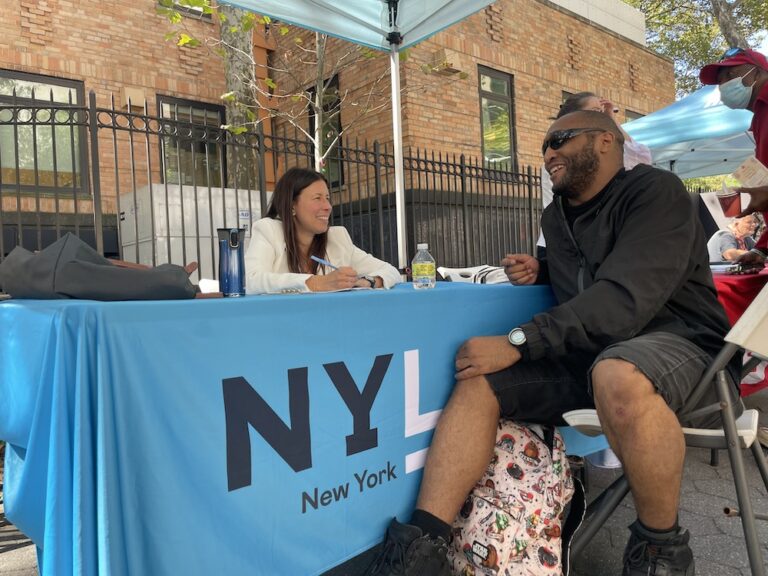Safiya N. Morgan
Senior Staff Attorney, NYLAG’s Immigrant Protection Unit
Black immigrants are often ignored in conversations about United States (U.S.) immigration, even as one in ten Americans of African descent is now an immigrant. The diversity of African descendant immigrants is regularly overlooked, as Black immigrants originate not only from Africa and the Caribbean, but also from Latin America, Europe, and Asia.
America has long made it clear that Black and other non-white immigrants were not welcome through its exclusionary immigration laws and its discriminatory practices that targeted Black Americans. One such law was the Naturalization Act of 1790 that limited U.S. citizenship to white immigrants. For much of U.S. history, Black Americans were counted as only 3/5 of a person and profoundly disenfranchised. This is the startling contrast of what it means to be a Black immigrant—that even attaining U.S. citizenship was not necessarily a safeguard against racist policies. Remarkably, Black Americans in advocating for the Civil Rights Act of 1964 thoughtfully extended the welcome mat by advocating for Black and other non-white immigrants, since the act forbade discrimination and segregation based not only on race and color—but also on national origin.
Riding the civil rights wave of 1964, President Lyndon B. Johnson signed the 1965 Immigration and Nationality Act into law which created the first inclusive immigration law and abolished the National Origins Formula. The National Origins Formula was a part of the 1924 Johnson-Reed Act, which created a quota system to limit immigrants from southern and eastern Europe, Africa, and Asia, all of whom were deemed to be racially inferior to immigrants from northern and western Europe. ¹Stephen Klineberg, a sociology professor at Rice University in Houston, has stated that the civil rights movement “was the main force that made that viciously racist law come to be perceived as intolerable,” precisely because it raised questions about fairness and equality. ²President Johnson in fact signed the 1965 Immigration and Nationality Act into law at the footsteps of the Statue of Liberty—a symbolic and practical gesture.
Unfortunately, systemic racism continues to impede Black immigrants’ socioeconomic mobility and integration. Recently former President Trump called Haiti and several African countries derogatory and explicit names; he then restricted immigration from Tanzania, Sudan, Somalia, Eritrea, Nigeria, and Libya, all under the guise of preventing “terrorism.” But let’s call it what it is—racism and discrimination.
Even now, although President Biden issued a 100-day moratorium on most deportations, he has continued the Title 42 expulsions of Haitians that started under former President Trump with the pretense of preventing the spread of COVID-19. This month alone, hundreds of Haitians, including pregnant women and children, were deported to Haiti in the midst of an unrelenting humanitarian, economic, and political crisis.
As an immigration attorney at New York Legal Assistance Group (NYLAG), I often bear witness to how anti-blackness perpetuated by the U.S. immigration system affects my clients and their options. Many of our Black clients have shared with me how they were treated differently, perceived differently, set up for failure, or feel like they are passed around from one place to another when they are simply seeking help and support as everyone else. I also see how many of our Black clients’ options for obtaining and maintaining immigration status continue to be limited by their countries of origin. For example, family-based immigration is not much of an option if historically individuals from your country were not allowed to easily immigrate to the United States.
We, at NYLAG’s Immigrant Protection Unit, continue to work tirelessly to amplify Black immigrants’ hardships and obstacles in the larger conversation on U.S. immigration policies. Our work strives to improve the immigration system by dismantling historical racial systemic barriers through advocacy and helping our clients secure the status to which they are entitled, thus, unlocking access to health care, employment, housing, education, and the “American Dream.” It is imperative that we continue to shed light on Black immigrants when they are being ignored and mistreated to ensure that we uphold their rights to have their basic human needs met.
For assistance on an immigration issue, please contact our Immigrant Protection Unit.
Share a condensed version of Safiya’s statement on your Twitter, Facebook, Instagram, and/or LinkedIn account.
¹See The Hart-Celler Immigration Act of 1965: Political figures and historic circumstances produced dramatic, unintended consequences by Jerry Kammer, Center for Immigration Studies September 30, 2015 https://cis.org/Report/HartCeller-Immigration-Act-1965
²See Civil Rights and Immigration History Connected, by Deepti Hajela, AP News, August 26, 2013 https://apnews.com/article/5b3a2295a46c4a408f04f7adf50b315f

![[Opinion] Why Black Immigrants are Excluded from Immigration Conversations in the United States[Opinion] Why Black Immigrants are Excluded from Immigration Conversations in the United States Black man wearing glasses with the American flag behind him.](https://nylag.org/wp-content/uploads/elementor/thumbs/Copy-of-Web-Page_Hero-Image-3-qhjeayloou8tsrtbg6f4rexscpfrzngrt75md8is3s.png)






